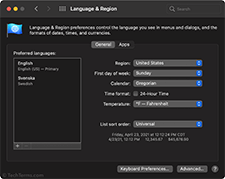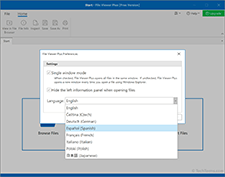Localization
Localization is the process of adapting a product for a specific region and language. It may include several steps, but the most common is language translation. In the context of IT, localization typically applies to software and websites.
Software Localization
Software localization involves translating all user interface elements into a specific language. Translated items include menu items, buttons, instructions, help documentation, and templates. Each localized element has an ID instead of a single text string, which is associated with multiple translations. When the user installs a localized app, the installer detects the system language and loads the correct text string for each ID.
Localizing an app can provide developers with new markets where English is not the primary language. Even in countries where most people speak English, users generally prefer to use apps in their native language. While large developers such as Microsoft and Apple translate software into dozens of languages, smaller developers may limit translations to the most widely-used. Some examples include:
- Spanish
- French
- German
- Chinese
- Japanese
Website Localization
The "World Wide Web" is accessible by people around the world and not everybody speaks English. Therefore, websites with a high number of international visitors may offer content translated in multiple languages. Similar to software programs, websites can detect the user's system language (or browser language setting) and display the corresponding translation. Some websites have a language option (often at the top or bottom of each page) that allows users to select their preferred language from a list.
No matter how localization is performed from a technical standpoint, the quality is only as good as the translations themselves. Therefore, large web publishers and software companies work with reputable translation companies to provide accurate localized content.
NOTE: If a website does not offer a translation in your language, you may be able to use your browser's built-in translate feature (such as Google Chrome's "Translate this page" option). Automatic webpage translation may not be as accurate as manually translated content, but it can help you understand the text.
 Test Your Knowledge
Test Your Knowledge
